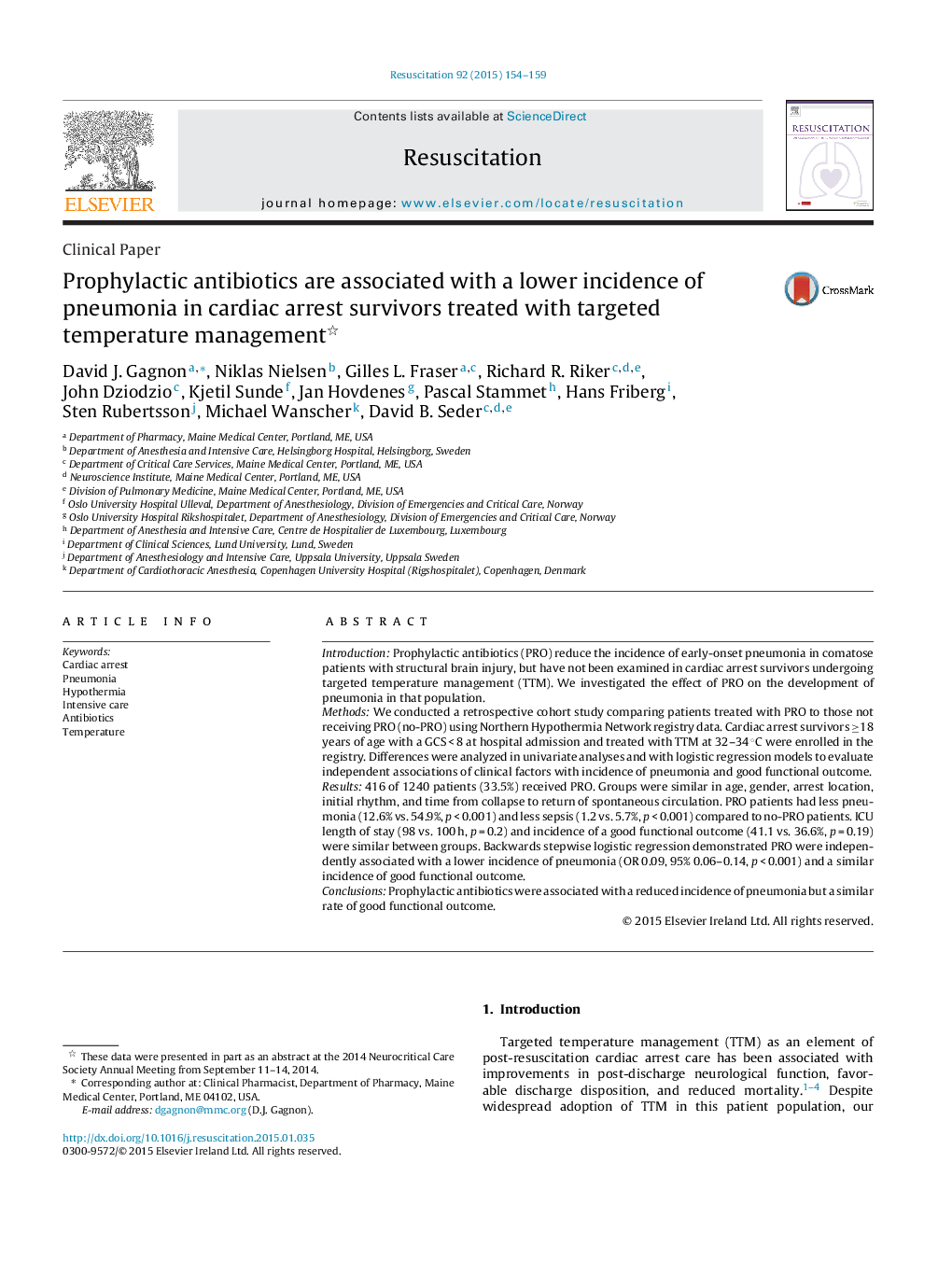| Article ID | Journal | Published Year | Pages | File Type |
|---|---|---|---|---|
| 5997833 | Resuscitation | 2015 | 6 Pages |
IntroductionProphylactic antibiotics (PRO) reduce the incidence of early-onset pneumonia in comatose patients with structural brain injury, but have not been examined in cardiac arrest survivors undergoing targeted temperature management (TTM). We investigated the effect of PRO on the development of pneumonia in that population.MethodsWe conducted a retrospective cohort study comparing patients treated with PRO to those not receiving PRO (no-PRO) using Northern Hypothermia Network registry data. Cardiac arrest survivors â¥18 years of age with a GCS < 8 at hospital admission and treated with TTM at 32-34 °C were enrolled in the registry. Differences were analyzed in univariate analyses and with logistic regression models to evaluate independent associations of clinical factors with incidence of pneumonia and good functional outcome.Results416 of 1240 patients (33.5%) received PRO. Groups were similar in age, gender, arrest location, initial rhythm, and time from collapse to return of spontaneous circulation. PRO patients had less pneumonia (12.6% vs. 54.9%, p < 0.001) and less sepsis (1.2 vs. 5.7%, p < 0.001) compared to no-PRO patients. ICU length of stay (98 vs. 100 h, p = 0.2) and incidence of a good functional outcome (41.1 vs. 36.6%, p = 0.19) were similar between groups. Backwards stepwise logistic regression demonstrated PRO were independently associated with a lower incidence of pneumonia (OR 0.09, 95% 0.06-0.14, p < 0.001) and a similar incidence of good functional outcome.ConclusionsProphylactic antibiotics were associated with a reduced incidence of pneumonia but a similar rate of good functional outcome.
